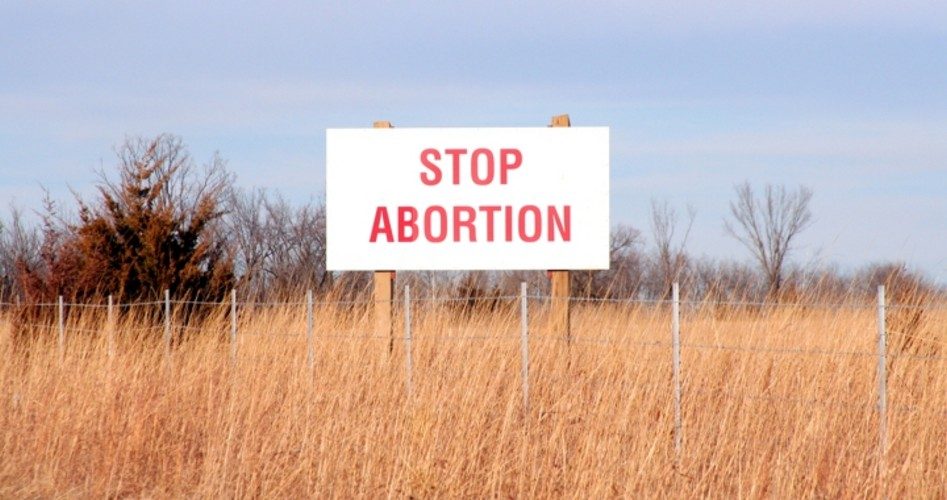
The Oklahoma House of Representatives passed a resolution earlier this week calling abortion an act of murder and directing state executive officials to “exercise their authority” to stop the practice.
Sponsored by Representative Chuck Strohm (R-Tulsa), who has a 97-percent “Conservative Index” score from the Oklahoma Constitution newspaper, HR 1004 directs “every public official in Oklahoma to exercise their authority to stop the murder of unborn children by abortion.”
Strohm explained his resolution after the vote, arguing that the U.S. Supreme Court had violated “every act of decency and law,” including the Declaration of Independence (which declares that the proper role of government includes the protection of life) and the U.S. Constitution. He charged that the Court had forced “the murder of unborn children on our society” by its rulings favoring abortion.
Strohm added that state officials have taken an oath to uphold the Constitution, which requires them “to exercise their authority as appropriate in their respective jurisdictions to stop the murder of innocent unborn children by abortion.”
He noted that the 10th and 14th Amendments to the U.S. Constitution mean that “no one — not a doctor, not a father or a mother — has rights that allows them to murder an unborn child.” The 10th Amendment reserves all power not delegated to the federal government to the states or to the people themselves, while the 14th Amendment is often cited by pro-lifers, because it declares that no state can deprive any person of “life” without due process of law. Understandably, pro-lifers contend that the present situation created by court decisions offers no due process to an unborn child before its life is ended. And, since no enumerated power has been given to the federal government to interfere with state laws against abortion, pro-lifers similarly argue that Roe v. Wade was a Supreme Court decision with no constitutional grounds.
“What happens when a court — and not just any court, but the highest court in the land — violates the most basic law known to mankind, the right to life?” Strohm asked. “Simply [the Supreme Court] had no authority to do what [it] did,” when, with Roe v. Wade, it struck down state laws restricting or even outlawing the practice of abortion.
HR 1004 states that “the Supreme Court of the United States overstepped its authority and jurisdiction” with Roe and other cases such as Planned Parenthood v. Casey. Unfortunately, the resolution is what is called in legislative rules a “simple resolution,” which means it is the opinion of one house of a legislative body, and does not have the force of law. To have the force of law, a resolution must be a “joint resolution,” passed by both houses. At the state level, joint resolutions usually involve such subjects as ratification of federal constitutional amendments, efforts to amend state constitutions, and the like. At the federal level, they are often used to propose amendments to the federal Constitution, or something such as a declaration of war.
Despite not having the “force of law,” the resolution makes a powerful statement — that abortion is murder — and indicates that members of the Oklahoma Legislature are becoming increasingly adamant against both abortion and what it considers usurpations of its authority to stop the practice.
Oklahoma presently has some of the most restrictive abortion laws of any state, and the Oklahoma Legislature has passed even more restrictive laws over the years only to have them tossed out by the Oklahoma Supreme Court. Even successful pro-life initiative petitions have not been allowed to go to the voters of Oklahoma, as required by the state Constitution. Although the Legislature is overwhelmingly Republican and pro-life, the state’s Supreme Court is adamantly liberal. The Oklahoma Supreme Court justifies its voiding of state laws restricting abortion on the grounds that the U.S. Supreme Court has already spoken on the subject via Roe v. Wade and other similar decisions.
To remedy that situation, this resolution by Strohm tells judges in Oklahoma, especially those on the liberal Supreme Court, not to interfere with the Legislature’s “right to clarify Oklahoma criminal law regarding abortion,” as they have the authority to do under the state Constitution. And the resolution directs sheriffs, district attorneys, the attorney general, and the governor to exercise their existing authority to stop the “murder of innocent unborn children.” If these officials would do so, it would effectively “nullify” both federal and state court interference in legislative efforts to protect unborn children in the state.
Unfortunately, Governor Mary Fallin — despite running for governor in 2010 and 2014 (and in all previous races, including for state representative, lieutenant governor, and Congress) as an ardent “pro-life” politician — chose to veto a powerful pro-life bill passed by the 2016 Oklahoma Legislature. SB 1552, sponsored by Senator Nathan Dahm (R-Broken Arrow) and the late Representative David Brumbaugh (R-Broken Arrow), was considered the most direct measure to stop abortions since the U.S. Supreme Court began labelling state anti-abortion laws unconstitutional in 1973. Dahm has a “Conservative Index” score of 98 percent from the Oklahoma Constitution newspaper.
Present Oklahoma law allows abortions to be performed only by licensed physicians. Violations are punishable by up to three years in state prison. Dahm’s bill would have removed the exemption for physicians and further stipulated that the performance of an abortion by a physician would constitute unprofessional conduct, leading to prohibiting the physician from obtaining or renewing his license to practice medicine. The only exception the bill allowed for a physician to perform an abortion was to preserve the life of the mother.
Despite the measure passing 59-9 in the House and 33-12 in the Senate, Governor Fallin vetoed SB 1552. It was reported that powerful corporate interests in the state pressured her to kill the bill. She argued that the courts would have struck it down even if she had signed it.
Fortunately, Governor Fallin is term-limited, and cannot run again in 2018. Pro-life forces in Oklahoma are hoping that a genuine pro-life governor will be elected next year, and that this year’s simple resolution can become a joint resolution, with the force of law in 2019.



